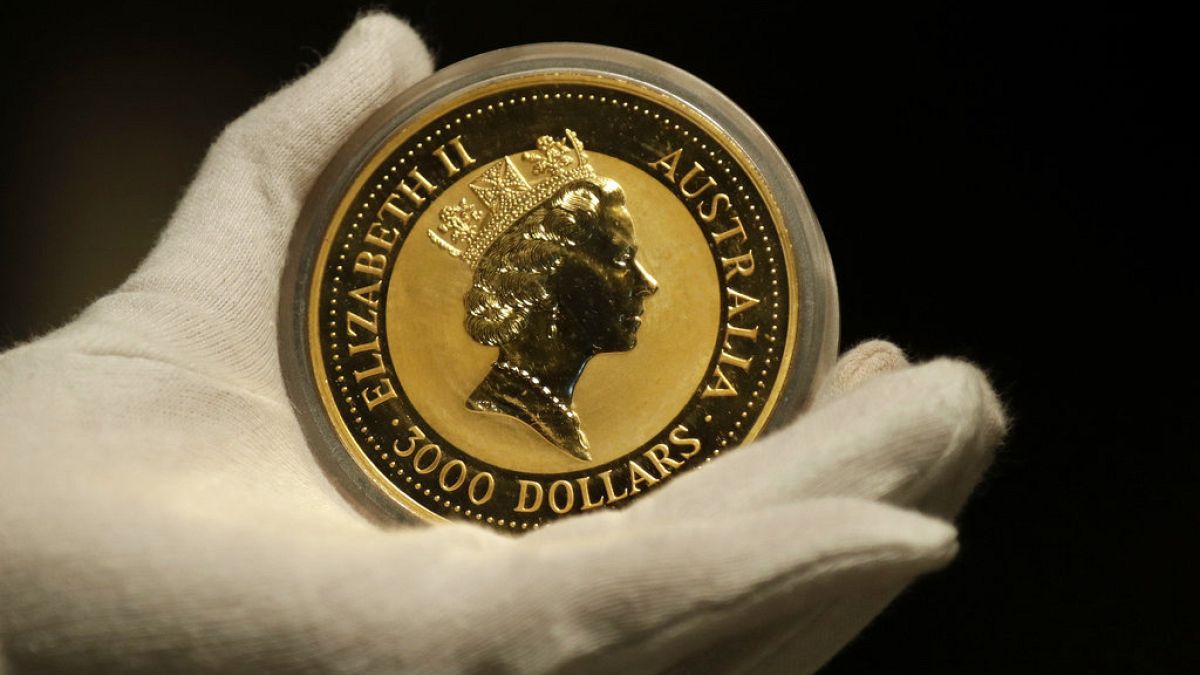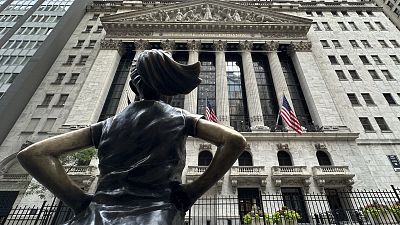Gold still has advantages such as being a credible inflation hedge, being rare and finite and having a relatively low correlation with other assets, according to gold investor and analyst Simon Popple.
Gold may not seem like the most exciting investment these days, but the precious metal could still deserve a place in your portfolio during these turbulent times, according to gold investor and analyst Simon Popple, the CEO of Brookville Capital.
Gold is usually seen as an inflation hedge. This is because as inflation eats away at your Euros, the price of every ounce of gold also rises simultaneously in Euro terms, leaving you with a more valuable asset.
In the past few months, several countries across the world have experienced high inflation, soaring interest rates and a rising cost of living, as well as increasing economic and geopolitical uncertainty. In such scenarios, investors have been fleeing more to precious metals such as gold and silver, due to their inflation hedging capabilities.
As Popple says, “Gold has been around for thousands of years and is recognised as being valuable anywhere in the world. No matter what the social, political or financial climate is, gold has never gone to zero or defrauded an investor. It is the ultimate form of money.”
Why is it still worth investing in gold?
Gold has a massive advantage over fiat currency, in the sense that its quantities are finite, with countries being unable to produce more gold above the amounts available to be mined. On the other hand, fiat currencies can be printed by governments at will, with overprinting often contributing to disastrous consequences like hyperinflation.
Popple highlights, “We need to remember that fiat currencies are essentially backed by the governments that issue them. The logic is compelling, but if you print too much money, the purchasing power goes down, and you invariably get inflation- making the currency less valuable.
“Imagine you’ve got a cake, it doesn’t matter how many times you slice it- it doesn’t get any bigger!”
Popple also emphasised that printing more money might work as a monetary loosening measure at first, but sooner or later, it almost always leads to higher inflation.
Another advantage is the metal’s liquidity, with it being easily convertible to fiat currencies. Gold is also consistent across countries, whereas things such as fiat currencies, properties and assets tend to vary significantly across the globe.
Gold also has a relatively low correlation to most other assets. On the other hand, very similar factors impact assets such as stocks and bonds, which broadly follow the same directions, in terms of market movements.
Popple pointed out, “One of gold’s standout features is its low correlation with traditional assets. This means that when other investments experience fluctuations in periods of stress, gold often moves in the opposite direction or remains relatively stable. This low correlation makes gold an effective tool for balancing your portfolio.
“Adding it to your investment mix can reduce overall portfolio risk and enhance stability.”
Gold has also typically performed well during times of high debt, with Popple noting, “During times of increasing debt (and I’m yet to hear a convincing argument as to why it will go down), gold has generally performed well.
“Broadly speaking, as debt has gone up - gold seems to have followed. It is important to bear in mind there are times when debt has gone up, but gold has gone down. However, over the longer term (10+ years), gold seems to have done okay. I like the idea of having exposure to something which could do well if debt continues to increase.
“What I like about this is that if the currency my other investments are in has taken a bath, I can convert my gold into a different currency, or I can convert it back into the same currency if I choose to. It’s up to me. I like the idea of having a choice.
“For example, let’s say sterling has depreciated against several leading currencies, such as the US dollar, the Euro, and the Yuan. If I’ve got some of my investments in gold, I don’t really care what happens to the currencies, it’s the gold price that matters to me.”
Investments in gold can be made either directly, through gold bullion, gold coins and jewellery, or indirectly, through gold exchange-traded funds and the shares of gold mining companies. Often first-time or novice investors venturing into the gold market choose to invest in gold indirectly, in order to get a feel for the market before venturing deeper.
However, gold is not an interest-bearing asset, meaning that in a high interest rate environment, such as the one most of the world finds itself in right now, investors can still be a little hesitant to invest in gold.
When asked whether he thought investors would be willing to choose gold over other interest-bearing assets at the moment, Popple says, “I think everyone should have a diversified portfolio which should include gold. I’m a strong believer that it’s ‘time in the market’, rather than ‘timing the market’, which is important- so I’d suggest getting into the market.
“If people are worried about timing, they could always get in over a period of time.”
Gold versus Bitcoin: Which seems to be winning?
In the last few years, ever since the exponential rise of Bitcoin, the cryptocurrency has also been seen as an inflation hedge, although some investors are still sceptical, due to cryptocurrencies being especially volatile.
Coming to where he stands on the ongoing debate of gold versus bitcoin as an inflation hedge, Popple says, “Gold has a track record whereas Bitcoin hasn’t. Personally, I prefer something with form. With Bitcoin being so expensive, I don’t feel comfortable buying it now.
“I know the supply is limited so the price has stayed reasonably high, but countries like to control the money supply and if there was ever a crisis, I think that Bitcoin could be a target - perhaps have its use banned.
“That’s not to say I’m totally against it, but I’d rather have my gold investments in place first. If they’re all in place (and they aren’t yet!) and I have some spare capital, then having a small exposure to Bitcoin is maybe something I would look at, but gold is my priority.”
Disclaimer: This information does not constitute financial advice, always do your own research on top to ensure it’s right for your specific circumstances. Also remember, we are a journalistic website and aim to provide the best guides, tips and advice from experts. If you rely on the information on this page, then you do so entirely at your own risk.















